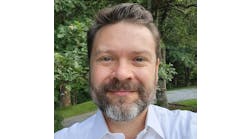Endress+Hauser increased sales and profit in 2017. According to the group, it benefited from stronger industry conditions and introduced a range of products, including its first digital services offering. Numerous new hires, investments and strides in the area of sustainability show how the company was able to grow.
In 2017 net sales rose 4.8 percent to 2.241 billion euros. “When adjusted for local currencies, we grew at a 6.5 percent rate; the instrumentation business enjoyed 8.0 percent growth,” said CEO Matthias Altendorf. A strong consumer business environment, stabilizing oil prices and low interest rates in 2017 led to greater investment activity in the process industry. “Apart from having to expand capacity, companies were looking for ways to produce more competitively, reliably and sustainably,” said Altendorf.
“The business performed well across practically all regions and industries,” said Altendorf. Two of the three largest markets, China and the US, grew. In Germany, the group’s top market, sales by the year end had yet to catch up with the rise in incoming orders. Development in the power & energy sector was driven in particular by the area of renewable energy.
Endress+Hauser launched 57 new products and 571 instrument options last year. Expenditure on research and development rose to 170.7 million euros, which equates to 7.6 percent of sales. Endress+Hauser filed 261 patents around the world in 2017.
“Our customers have realized that the Industrial Internet of Things is changing the value chains,” said Altendorf. “A new degree of transparency makes it possible to optimize processes and gain in efficiency.” With concepts for the IIoT – or Industry 4.0 – taking concrete shape, Endress+Hauser introduced its first digital service for analyzing and managing the installed base of field devices.
Three acquisitions strengthened the Endress+Hauser's portfolio for measurement and analysis of quality parameters. SensAction manufactures systems that measure concentrations in liquids. IMKO Micromodultechnik produces sensors that detect moisture in solids. Technology from Blue Ocean Nova allows customers to integrate spectrometers directly into production processes. In the laboratory area, Analytik Jena is placing focus on the core business with analytical instruments and bioanalytical systems.
Endress+Hauser improved operating profit (EBIT) by 15 percent to 251.7 million euros. Despite higher foreign exchange hedging costs, profit before taxes (EBT) rose 24.9 percent to 275.6 million euros thanks to extraordinary effects resulting from the sale of an equity holding.
Post-tax net income grew by 34.2 percent to 209.1 million euros. The effective tax rate of 24.1 percent was the result of changes to the local tax rates applied to earnings in individual countries.
Return on sales (ROS) climbed 2.0 points to 12.3 percent. In contrast, the equity ratio sank 0.3 points to 70.2 percent due to exchange rate effects. A change in the accounting guidelines caused the ratio to drop 2 to 3 percentage points from previous years.
Endress+Hauser invested 138.7 million euros worldwide. The company opened its third plant in the Chinese city of Suzhou to provide additional production capacity for flow, temperature and analytical instrumentation. The facility also houses the world’s largest flowmeter calibration system of its kind. The new sales center building in Belgium provides double the space while cutting energy consumption in half.
In 2017 Endress+Hauser scored 66 out of 100 pointsin the annual EcoVadis benchmark, which rates supplier sustainability, to place in the top two percent of all companies that were evaluated.
Endress+Hauser created 296 new jobs in 2017 and at year end, 13,299 people worked for the group around the globe. he largest number of jobs was created at the two flowmeter production facilities in Reinach, Switzerland and Cernay, France.



